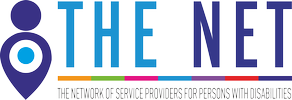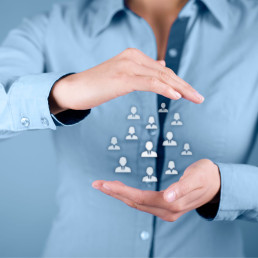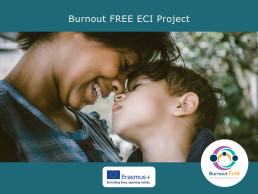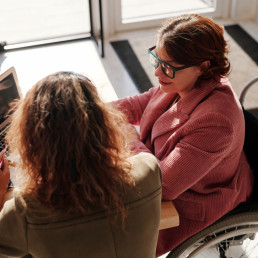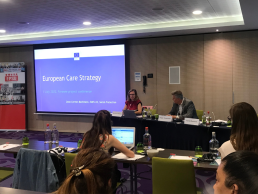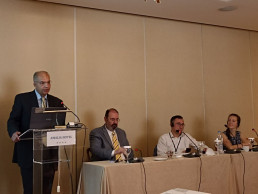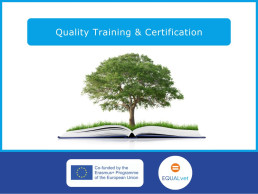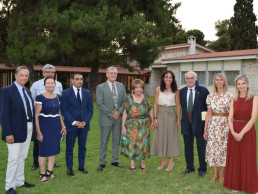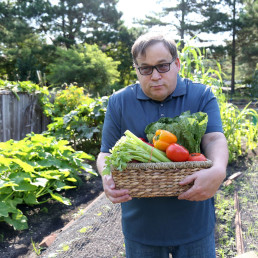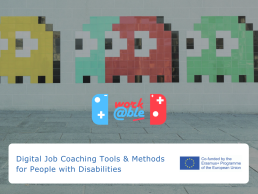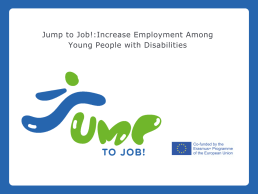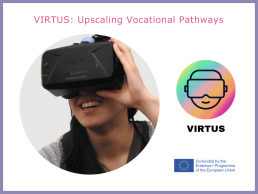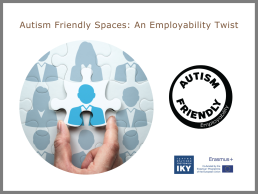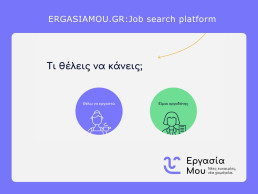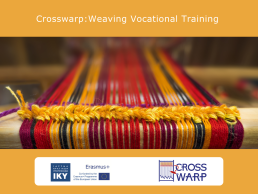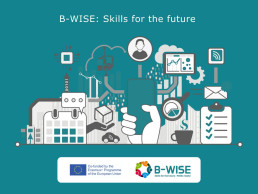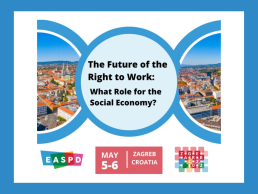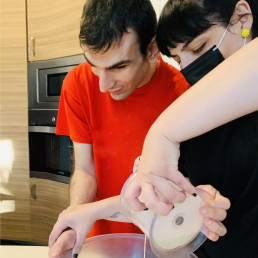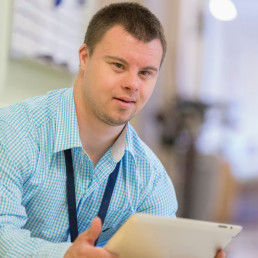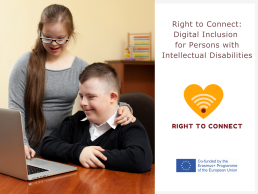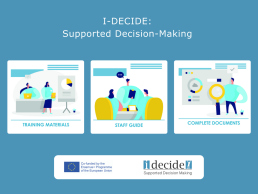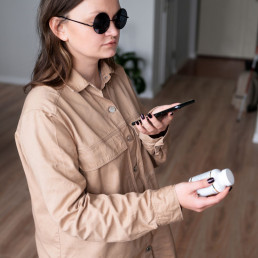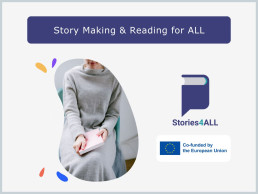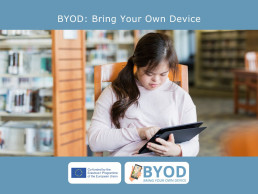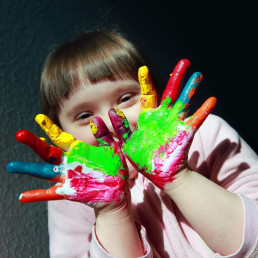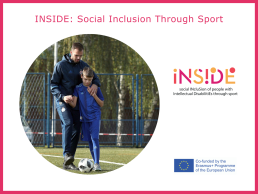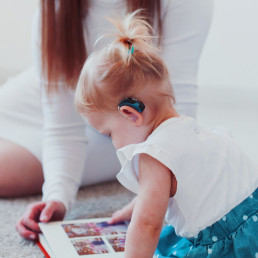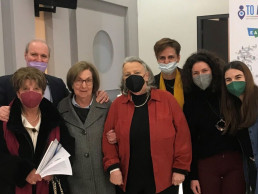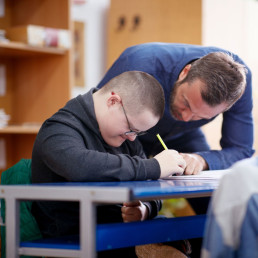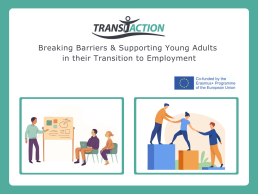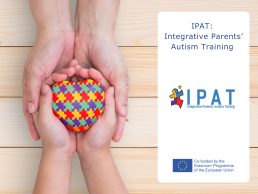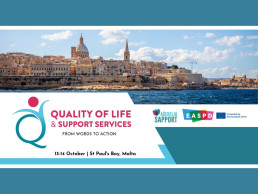Workforce Development & Human Resources
Workforce Development & Human Resources
Under Construction
Under Construction
Under Construction
The members of the working team are the following:
Evangelia-Christina Andreadi (MARGARITA VTC)
Aggeliki Mylona (“THEOTOKOS” Foundation)
Christiana Zotou (Amimoni)
Nikoletta Mavroidi (Child and Adolescent’s Center)
Eleftheria Papadopoulou (Organisation for the Protection of Persons with Autism–P.D.D. of the prefecture of Kastoria)
Anastasia Papargyri (“PAMMAKARISTOS” Foundation for Child)
Zoi Parmaki (Association of Parents Guardians & Friends of People with Autism Larissa Prefecture – Greece)
Eleni Roditi (Cerebral Palsy Greece/Open Door)
Polina Tzounara (Panhellenic Association of Adapted Activities “ALMA”)
Contact the working team
Policymaking
Policymaking
The welfare for Persons with Disabilities (PwD), as expressed through the design and provision of services for PwD, represents a basic axis of national provisions & implementations, advocating over the human rights of PwD.
All these legal provisions are implemented through a series of policies relevant to the persons with disabilities, in which, participatory planning with the involvement of the service provider and the beneficiary, is of utmost importance. Firstly, for the anticipation of developing needs of PwD and secondly for the optimal and effective servicing of these needs.
The NET, as a basic social stakeholder, supports an effective policymaking for PwD, by attending to their real needs, through the provision of services that have the highest relevance to their everyday life.
The service providers to PwD – members of The NET, do have the necessary proximity to the field as well as the necessary scientific infrastructure, so that they recognize timely the emerging needs of the PwD they service and cover them with a plethora of well-documented and applied interventions, contributing this way with their work, to the optimal policymaking for PwD, in the context of an anthropocentric, national welfare design.
The members of the working team are the following:
Nikos Vasalos (Ploes)
Dionysia Vasilara (Amimoni)
Eleni Drakopoulou (Panhellenic Association of Adapted Activities “ALMA”)
Andriani Efstathiou-Maniati (ELEPAP)
Giovanna Kampouri (Estia Agios Nikolaos)
Christina Kolliatsi (Estia Agios Nikolaos)
Constantinos Kontogeorgos (Child and Adolescent’s Center)
Panagiotis Korfoxyliotis (Association of Parents, Guardians and Friends of PwD “To Ergastiri”)
Katerina Konstantopoulou (MARGARITA VTC)
Antonia Makridou (“THEOTOKOS” Foundation)
Lida Mamali (National Council of YMCAs)
Erasmia Markopoulou (Association of Parents Guardians & Friends of People with Autism Larissa Prefecture – Greece)
Foteini Midoucha (Association of Parents Guardians & Friends of People with Autism Larissa Prefecture – Greece)
Christina Bakari (Organisation for the Protection of Persons with Autism–P.D.D. of the prefecture of Kastoria)
Rena Radou (“SYZOI” – Parents’ Association of People with Vision Disorders & Additional Disabilities)
Eleni Roditi (Cerebral Palsy Greece/Open Door)
Julia Stavridou (“PAMMAKARISTOS” Foundation for Child)
Tina Triantafyllou (Panhellenic Association of Adapted Activities “ALMA”)
Contact the working team
Employment
Employment
Article 27 of the UN Convention on the Rights of Persons with Disabilities recognizes, inter alia, the inalienable right of persons with disabilities to work on an equal basis with all other members of society.
The protection of the right to fair and favorable working conditions, vocational and continuing education, the promotion of vocational rehabilitation and retention of work, are just some of the main points of the contract.
The Greek “NET” of Service Providers for People with Disabilities consists of organizations with extensive experience in the field of vocational rehabilitation. One of the main objectives of the NET is to link it to the labor market, promote work and self-employment and prohibit discrimination on the basis of disability, in relation to all matters relating to all forms of work.
The members of the working team are the following:
Anastasia Gouglia-Germani (“PAMMAKARISTOS” Foundation for Child)
Vasiliki Detsi (Cerebral Palsy Greece/Open Door)
Christina Dristela (Association of Parents Guardians & Friends of People with Autism Larissa Prefecture – Greece)
Kaiti Katsouda (“THEOTOKOS” Foundation)
Christalena Kattami (ELEPAP)
Elli Kotsanou-Romvotsanou (Estia Agios Nikolaos)
Katerina Mascha (Child and Adolescent’s Center)
Loa Palmarsdottir (Estia Agios Nikolaos)
Aliki Panagiotakou (Panhellenic Association of Adapted Activities “ALMA”)
Dionysis Serras (Ploes)
Dimitris Tourlidas (MARGARITA VTC)
Martha Charisi (Child and Adolescent’s Center)
Contact the working team
Related Actions
Supported Living
Supported Living
Supported Living Accomodation (SID) is the total number of spaces available for the permanent living-residence of the person aged 18 and over with a disability according to the appropriately organized support. Supported Living strengthens the fundamental right to independent living of every person with a disability, through on the one hand the provision of care and support, with respect for their rights, dignity, needs and desires and on the other hand the maintenance and development to the maximum extent of skills and abilities.
The SIDs can operate either as independent residences or exist in the same building complex. They have a capacity of 1-4 people up to 5-9 people. They are located within the urban fabric and close to social services. The benefits offered by a SID are accommodation in a single or double room, healthy and balanced diet, access to medical and nursing care, entertainment as well as participation in educational programs. Socialization and contact with the community is satisfied through visits to venues, excursions and cultural events.
The members of the ΝΕΤ, through coordinated actions, promote the exchange of good practices regarding the terms and conditions of operation of the Supported Living Accomodation for the people with disabilities and seek participation in programs (Νational, European, etc.) aiming at a decent living, maximum possible independence and social integration of people with disabilities.
The members of the working team are the following:
Alexandros Antoniou (Amimoni)
Lazaros Zamkinos (Organisation for the Protection of Persons with Autism–P.D.D. of the prefecture of Kastoria)
Eleni Iatridou (Ploes)
Nikos Kazantzidis (“SYZOI” – Parents’ Association of People with Vision Disorders & Additional Disabilities)
Sofia Karagkouni (MARGARITA VTC)
Christalena Kattami (ELEPAP)
Katerina Koutla (Cerebral Palsy Greece/Open Door)
Lida Mamali (National Council of YMCAs)
Alexandros Mavrantonakis (“THEOTOKOS” Foundation)
Maria Batagia (Panhellenic Association of Adapted Activities “ALMA”)
Dayla Booth (Estia Agios Nikolaos)
Zozefina Nomikou (ESTIA Support & Social Care Centre for People with Intellectual Disabilities)
Kostis Prouskas (Estia Agios Nikolaos)
Julia Stavridou (“PAMMAKARISTOS” Foundation for Child)
Giorgos Sakellariou (Association of Parents Guardians & Friends of People with Autism Larissa Prefecture – Greece)
Contact the working team
Related Actions
Nothing found.
Self Advocacy
Self Advocacy
All people, regardless of their disability, have the right to make decisions and choices. This right is linked to the self-advocacy movement which promotes the ability of people with disability to represent themselves in order to externalize their thoughts, desires, needs, and concerns.
This right is described in Article 12 of the United Nations Convention on the Rights of Persons with Disabilities (UN CRPD) through the implementation of Supported Decision-Making practices (SDM). SDM is a methodology that allows people with disabilities to retain their decision-making ability no matter the status of their legal capacity. The SDM methodology relates to the proper representation of people with disabilities either through a supporter/guardian or through self-representation.
The Greek “NET” of Service Providers for People with Disabilities consists of organizations with extensive experience in the field of self-advocacy and legal capacity. One of the main goals of the NET is to develop and highlight methods through which professional supporters can empower the self-advocacy and decision-making skills of people with disabilities to be active members of society and to participate as citizens and consumers with equal rights.
The NET through its actions will support the judicial assistants and the people, who due to the gravity or the multiplicity of their disabilities, cannot defend their rights. The practices of the NET on this area will focus on the safe transition of legal capacity for the benefit of the person with a disability and will focus on their active participation in the decision-making process.
Contact the working team
Technology
Technology
Technology is the medium for both service providers and beneficiaries that can help them on their way to independent living.
For this reason, it is important for organizations providing services to people with disabilities to adopt and promote full digital inclusion, ensuring that everyone can enjoy the benefits of Assistive Technology (AT) or Person Centered Technology (PCT).
People with disabilities must be involved in the process of designing and developing applications in order to express their needs themselves. In this way their digital and social inclusion will be achieved.
Widespread use of technology will also “free up” human resources in the welfare sector ensuring that professionals will continue to provide quality services to those most in need.
The “NET” promotes the development and exchange of good practices that will contribute to the provision of better services that will have a direct impact on the lives of people with disabilities, those around them, professionals and consequently the whole society.
The members of the working team are the following:
Annie Apostolopoulou (ELEPAP)
Anastasios Aristotelous (Organisation for the Protection of Persons with Autism–P.D.D. of the prefecture of Kastoria)
Giorgos Grimas (ELEPAP)
Clervie Zeo (Estia Agios Nikolaos)
Ourania Zoi-Mitsi (Amimoni)
Elli Kafritsa (MARGARITA VTC)
Panagiotis Korfoxyliotis (Association of Parents, Guardians and Friends of PwD “To Ergastiri”)
Polyxeni Kourasti (Child and Adolescent’s Center)
Aggeliki Louloumari (Ploes)
Zoi Melachri (Panhellenic Association of Adapted Activities “ALMA”)
Chrysoula Papakyriakou (Association of Parents Guardians & Friends of People with Autism Larissa Prefecture – Greece)
Katerina Panagiotopoulou (Cerebral Palsy Greece/Open Door)
Kostis Prouskas (Estia Agios Nikolaos)
Nektaria Sifaki (“THEOTOKOS” Foundation)
Eleni Christodoulou (“PAMMAKARISTOS” Foundation for Child)
Contact the working team
Arts & Culture
Arts & Culture
Access to Arts and Culture is a fundamental human right. However, people with disabilities often do not have full access to cultural events. Thus, they are deprived of the opportunity to participate or enjoy an event of art and culture.
Article 30 of the UN Convention on the Rights of Persons with Disabilities defines their equal right to participate in cultural life, recreation, leisure and sport. In this context, it states that States Parties must take the necessary measures to ensure that people with disabilities have access to the arts and culture as well as the necessary support to participate.
Recognizing the right of people with disabilities, the members of the NΕΤ of Service Providers, share the same vision; the promotion and defense of parity, participation and enjoyment of cultural life.
Our goal is to share knowledge and exchange good practices around inclusion in the arts, enhancing social cohesion. We support the development of initiatives and programs that facilitate access to the arts and we support artists with disabilities
At the NET we work closely with our members, in our joint effort to provide the right services to people with disabilities and the chance to integrate Arts and Culture into their daily lives.
The members of the working team are the following:
Evangelia-Christina Andreadi (MARGARITA VTC)
Vasiliki Vasilaki (Association of Parents, Guardians and Friends of PwD “To Ergastiri”)
Peggy Vassalou (National Council of YMCAs)
Rena Daskalaki (Panhellenic Association of Adapted Activities “ALMA”)
Melpomeni Dimou (Association of Parents, Guardians and Friends of PwD “To Ergastiri”)
Constantina Katostari (Amimoni)
Chrysi Kritsotaki (“THEOTOKOS” Foundation)
Paraskevi Boura (Ploes)
Panagiotis Baltadouros (“PAMMAKARISTOS” Foundation for Child)
Ploumitsa Nomikou (ELEPAP)
Athanasia Papoulidou (Organisation for the Protection of Persons with Autism–P.D.D. of the prefecture of Kastoria)
Thomi Soulti (Association of Parents Guardians & Friends of People with Autism Larissa Prefecture – Greece)
Alexia Chamodraka (Cerebral Palsy Greece/Open Door)
Contact the working team
Early Intervention
Early Intervention
Early intervention for children 0 to 6 years old is the main toolkit for the integration and support of people with disabilities, from the beginning of their lives. Early intervention programs aim to create at an early stage a supportive environment for the families and their carers, so that people with disabilities can participate in society, integrate in education system, enter the open labour market, and enjoy the full range of their human rights.
With adequate support, parents and carers can provide the best, sustainable and affordable support to their children, to thrive and grow in a familiar environment.
It is important to ensure that early intervention services receive adequate funding and that the staff employed are well trained in the model of early childhood intervention.
An Early Intervention Program can provide:
- Kindergarten simulation group program with small ratio children/staff.
- Individual and group programs of psychoeducation, speech therapy and occupational therapy.
- Support and psychoeducation for parents to generalize the programmes at home.
- Early intervention in the community for preschool children and their families attending the municipal nurseries
The NET through its members participates in the committees set up by the competent ministry, promoting already successfully proven Early Intervention services and proposing institutional changes that contribute to the provision of better quality services that will have a direct impact on the lives of people with disabilities, their surroundings, professionals and, by extension, the society as a whole.
The members of the working team are the following:
Aggeliki Gena (Institute of Systemic Behavior Analysis – ISAS)
Antigoni Georgiadou (Panhellenic Association of Adapted Activities “ALMA”)
Mirella Giannakopoulou (“THEOTOKOS” Foundation)
Nikos Katsantonis (“PAMMAKARISTOS” Foundation for Child)
Lida Mamali (National Council of YMCAs)
Dimitra Basdeki (Institute of Systemic Behavior Analysis – ISAS)
Constantina Neofotistou (“SYZOI” – Parents’ Association of People with Vision Disorders & Additional Disabilities)
Katerina Papavasiliou (Organisation for the Protection of Persons with Autism–P.D.D. of the prefecture of Kastoria)
Agapi Papadaki (Amimoni)
Maria Pyrgeli (ELEPAP)
Vivi Sidirofagi (Child and Adolescent’s Center)
Ioanna Tsiouri (Association of Parents Guardians & Friends of People with Autism Larissa Prefecture – Greece)
Contact the working team
Special Needs Education & Rehabilitation
Special Needs Education & Rehabilitation
The current approach towards the education & rehabilitation of persons with disabilities, is being formed through the services of the daily care centers (DCC). DCCs are becoming the main mechanism for the implementation of the social model in disability services, as non-typical, life-long education with socio-economic & inclusion targets. Therefore, DCCs must expand arithmetically to cover the whole country and they must upgrade their spectrum of services.
DCCs are –for all disabilities- a basic public tool for the assessment and development of the functionality and the adaptive skills of persons with disabilities, in post-puberty and early adulthood. This way, disabled persons follow the–individually- optimal daily care programs, on the basis of their innate capacity & personal interests, in order to achieve maximum life outcomes (self-support & socio-economic participation).
DCCs are –also- the most suitable structures for the implementation of vocational training and supported employment programs for the disabled, through occupation simulations and mentors’ training both in public & private sectors, during the period of their internship or adaptation. Through a necessary, new legal framework provisions must be made so that DCCs will be functionally interrelated with public vocational training structures and employment search & market integration services, through the model of Supported Employment.
Moreover, DCCs are the only structures that –in cooperation- with supported living facilities and parent/guardian associations, implement individualized & structured transition programs of adult persons with disabilities, from the family home to community supported living structures. These transition programs are successfully implemented by DCCs many years now, however with no underlying legal framework. This framework must be created, making provisions both for Transition Programs to Community Supported Living and Parent/Child Respite Care Services. This way we will have a complete framework of support services that ensures and protects the family systems of persons with disabilities.
The NET advocates and works towards all the above mentioned, current social needs – directives, with proposals and action plans devised by the cooperation of its member – service providers with international partner entities, specializing in disability issues. These proposals and action plans are being presented to international & national decision-making centers on disability issues and to political governance representatives at a national level.
The members of the working team are the following:
Lemonia Aidonidou (Amimoni)
Elena Dimopoulou (ELEPAP)
Mary Ioannidi (Ploes)
Aristea Levaki (“PAMMAKARISTOS” Foundation for Child)
Giannis Bistas (MARGARITA VTC)
Maria Papagavriil (Panhellenic Association of Adapted Activities “ALMA”)
Sofia Papagianni (“THEOTOKOS” Foundation)
Erasmia Markopoulou (Association of Parents Guardians & Friends of People with Autism Larissa Prefecture – Greece)
Eleni Roditi (Cerebral Palsy Greece/Open Door)
Maria Spatharaki (ELEPAP)
Constantinos Christias (Organisation for the Protection of Persons with Autism–P.D.D. of the prefecture of Kastoria)
Katerina Psarra (Cerebral Palsy Greece/Open Door)
Contact the working team
